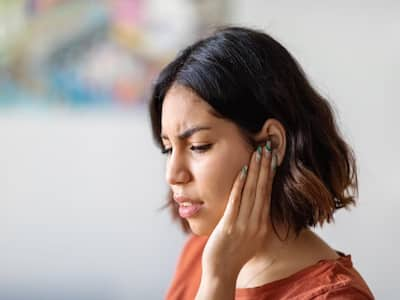
Read on to know the causes of ear infections during the monsoon season. Also, make sure to follow expert tips provided below to prevent monsoon-related ear infections.
Not only eye or skin infections even ear infections can give a tough time to people of all age groups during monsoon. These worrisome monsoon-related infections can occur any area of the ear including the inner, middle, or even the external ear. So, ensure to take enough care of your ears during the monsoon by adhering to the expert tips given in the article below.
Dr Prashant Kewale, ENT Specialist, Apollo Spectra Mumbai, explains the causes of ear infections during monsoon season, as well as shares measures to prevent them and how they are treated.
Causes of ear infections during the monsoon season
Monsoon surely gives one that much-needed break from the scorching heat, but it can be a matter of concern too. The contaminated rainwater can enter one’s ears leading to fungal infections. The rise in humidity level is a breeding ground for bacteria that invite ear infection. Debris in the ear and bruises from ear buds can also raise the chances of ear infections. A fungal infection of the ear commonly known as otomycosis also causes pain in the ear. Other causes of infections include colds or flu and allergies. In addition, bacteria like Streptococcus pneumonia and Hemophilic influenza can make one prone to bacterial ear infections.
Signs of ear infections to watch out for
Those having an ear infection can notice signs and symptoms such as choked ears, irritation, swelling, itchiness, earache, decreased hearing, watery discharge, dizziness, severe headaches, and even fever. It is imperative for you to seek timely intervention after the symptoms appear.
READ RELATED: Bile Acid Diarrhea: Now, A Simple Blood Test Can Identify This Tabooed Disease
Treatment of ear infections
If you notice the red flags associated with ear infections, do not delay treatment as doing so can worsen your condition. Use ear drops and medication prescribed by the doctor only. Self-medication is a strict no-no.
Take care of your ears during monsoon
- Go for regular screening of the ear
- Keep the ears clean and dry after taking a shower.
- Avoid using earbuds to remove earwax as this can cause injury and temporary hearing loss
- Clean the ear with a clean cloth
- Do not eat cold and sour foods during monsoon as that can further aggravate ear pain.
- If you have a throat infection then drink tea, coffee, or other warm liquids. Go for salt-water gargle to prevent throat infection.
- Avoid blowing the nose when you have a cold as it can cause a middle ear infection (otitis media).
Total Wellness is now just a click away.
Follow us on
Don’t Miss Out on the Latest Updates.
Subscribe to Our Newsletter Today!
window.addEventListener(‘load’, (event) => {
$(‘#commentbtn’).on(“click”,function(){
(function(d, s, id) { var js, fjs = d.getElementsByTagName(s)[0]; if (d.getElementById(id)) return; js = d.createElement(s); js.id = id; js.src = “//connect.facebook.net/en_US/sdk.js#xfbml=1&version=v2.3”; fjs.parentNode.insertBefore(js, fjs);}(document, ‘script’, ‘facebook-jssdk’));
$(“.cmntbox”).toggle();
});
});









